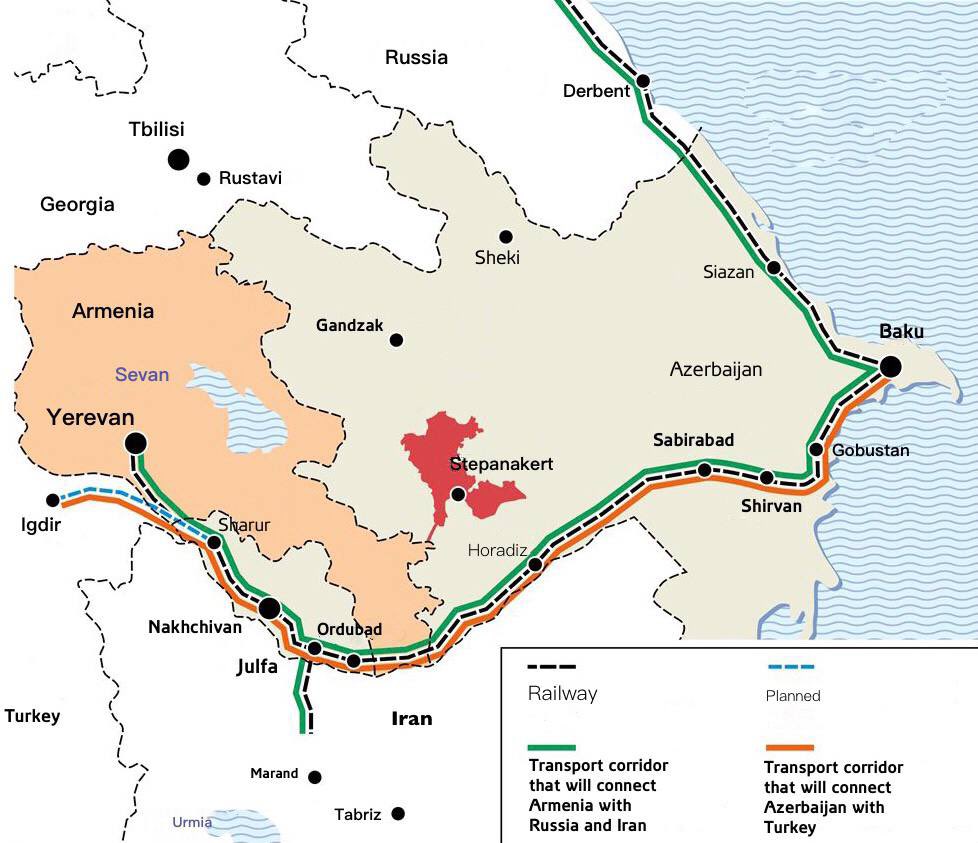
Since the emergence of the Nagorno-Karabakh conflict, the necessity of the establishment of communication and transportation links in the region has been put forward as a precondition for the peaceful solution of the conflict. In 1992, Turkish President of the period Turgut Özal, in his meeting with US President George H. W. Bush, made a proposal based on a land exchange within the framework of a "Corridor Change Plan". Later, based on this idea, the "Goble Plan" was put forward by Paul Goble in the US Department of State in 1999; it was proposed to give the Lachin corridor to Armenia in return for Azerbaijan to take the Megri (Zangezur) corridor, which would provide transportation between the Nakhichevan Autonomous Republic and Azerbaijan. However, this plan was shelved due to the internal turmoil in the party countries during the discussion of this plan and uncertainty concerning its content.[1]
The step-by-step approach, package solution, and Madrid Principles which was put forward by the Organization for Security Cooperation in Europe (OSCE) has also emphasized the need for the restoration of highways, railways, electricity transmission lines and connections, trade, and other relations simultaneously with the withdrawal of forces from Nagorno-Karabakh and the seven adjacent districts.
After the war between Georgia and Russia in 2008 due to the South Ossetia Region, it has been observed that Russia's influence in the Caucasus intensified and Russia’s affect in the Nagorno-Karabakh issue and its contribution to the negotiations increased. From this date on, Russian President Dmitry Medvedev considered Russia's mediating role in the Nagorno-Karabakh issue to be important for the country’s international reputation. A declaration initiated by Russia that demonstrated the intention to solve the problem peacefully between Armenia and Azerbaijan was the first document signed by the presidents of Armenia and Azerbaijan since the ceasefire of 1994.[2] Moreover, in 2009, Medvedev tasked Russian Foreign Minister Sergei Lavrov with becoming the lead mediator in the conflict resolution process.[3]
The ninth of the trilateral summits initiated as of 2009 with Russia at the helm was held in Kazan in 2011. The "Kazan Principles", which are the continuation of the Madrid Principles announced by the OSCE, were put forward during this summit. However, Azerbaijan objected to the ambiguity of some articles in these principles and the proposal to give a temporary status to Nagorno-Karabakh. With the ceasefire declaration signed between Armenia, Azerbaijan and Russia on 10 November 2020 after the 44-day war in Nagorno-Karabakh in the same year, we can argue that, based on the plan foreseen in the Kazan Principles, emphasis was placed on regional economic cooperation and restoration of transportation routes as a way to provide the cooperation. In the context of the ceasefire, the decision to ensure control of transportation links in the region by the Russian Federal Security Border Guard Service and the deployment of Russian peacekeepers was a step in favor of Russia in the resolution of the conflict.
With the ceasefire signed on 10 November 2020, a decision was made on the construction of all transport links, and after the trilateral summit in Moscow on 11 January 2021, the map of the agreed transportation routes -including the railway- was published in the Russian press.[4] The ceasefire guarantees the establishment and security of transport links between Azerbaijan and Nakhchivan. In this direction, a railway transportation plan that will connect Azerbaijan to Nakhchivan through the Zangezur (Megri) corridor in the Syunik region of Armenia is on the agenda.
Nakhchivan has been in an isolated situation since the collapse of the Soviet Union and the emergence of the Nagorno-Karabakh conflict. Transportation to Nakhchivan is only possible either by airplane from Baku or by road from Turkey or via Iran. It is also known that the customs authorities levy expensive charges on any vehicle crossing the border.[5] Therefore, the railway to be built in the Zangezur corridor will both remove the isolation of Nakhchivan and reduce transportation costs. A railway to be built in the new corridor will shorten the transportation distance compared to the Baku-Tbilisi-Kars railway and reduce transportation costs.[6]
Author Thomas De Waal states that if a normal relationship can be established in the region, Nakhchivan can be a crossroad linking east and west.[7] As a matter of fact, Azerbaijani President Ilham Aliyev invited the states of the region to benefit from the Zangezur corridor at the Economic Cooperation Organization and the Turkic Council summits. It has been announced that the infrastructure of the transportation link to be established between Nakhchivan and Azerbaijan will be constructed after the completion of the Horadiz (Fuzuli) and Agbend (Zanglian) railways whose foundations were laid on 14 February.
The Zangezur transportation road project has caused some reactions in Armenia. However, Aliyev did not avoid statements that could provoke these reactionary circles in Armenia because he as an advantageous position due to the "Lachin corridor" trump card; this corridor provides the connection between Armenia and Nagorno-Karabakh. Russian peacekeepers have been deployed on the link road in the Lachin region, which was returned to Azerbaijan on 1 December 2020. Although the final status of Nagorno-Karabakh has not been determined yet in accordance with Article 6 of the ceasefire, it is foreseen to establish a transport link between Armenia and Nagorno-Karabakh along the Lachin corridor that will pass through the Azerbaijani territories.
In addition, it is known that Armenia does not have a railway connection with Russia and the only transport link is a road through Georgia which is located in a troubled region due to bad weather conditions and contested geopolitics.[8] For this reason, the restoration of the railway that will connect Armenia to Russia through Azerbaijan, which was used during the time of the Soviet Union, has been brought to the agenda as well.[9] The railway connection with Iran via Nakhchivan is also gaining importance. The Iranian Foreign Minister Javad Zarif has announced that negotiations were held for the restoration of a railway connecting the Persian Gulf, the Black Sea, and Russia through Nakhchivan and Armenia.[10] Of course, financing issues must be resolved to realize these high-cost projects, and above all, the parties must show the willingness to end the conflict and act together.
The establishment transportation connections is also important for Turkey, which is one of the biggest foreign trade partners of the South Caucasus. In this way, it will be possible to integrate the developing Eurasian formation with the West through Turkey. The new transport routes will shorten the distance between Turkey and the Caspian Sea and Central Asia, and contribute to the development of Turkey's "Middle Corridor Initiative".
[1] İdil Tunçer Kılavuz, “Dağlık Karabağ Müzakerelerinin Geleceği”, Avrasya Etüdleri, 52 (2017), sf. 58,59.
[2] Thomas De Waal, Karabağ: Barış ve Savaş Süreçlerinde Ermenistan ve Azerbaycan, Hrant Dink Vakfı Yayınları, Kasım 2014, İstanbul, sf. 362
[3] De Waal, Karabağ: Barış ve Savaş Süreçlerinde Ermenistan ve Azerbaycan, sf. 363.
[4] “Azerbaycan ve Türkiye arasında kurulacak kara bağlantısını gösteren harita yayınlandı”, Hürriyet, 14 January 2021, https://www.hurriyet.com.tr/dunya/azerbaycan-ve-turkiye-arasinda-kurulacak-kara-baglantisini-gosteren-harita-yayinlandi-41714200
[5] De Waal, Karabağ: Barış ve Savaş Süreçlerinde Ermenistan ve Azerbaycan, sf. 378.
[6] Vasif Huseynov, “Azerbaijan Embarks on Construction of Nakhchivan Railway (Part Two)”, The Jamestown Foundation Eurasia Daily Monitor, 13 April 2021, https://jamestown.org/program/azerbaijan-embarks-on-construction-of-nakhchivan-railway-part-two/
[7] De Waal, sf. 379.
[8] Garen Nazarian, “The Meghri Corridor: A Viable Transport Link or Geopolitical Noose?”, EVN Report, 22 March 2021, https://www.evnreport.com/politics/the-meghri-corridor-a-viable-transport-link-or-geopolitical-noose
[9] Ani Mejlumyan, “Armenia proposing restoration of rail route through Azerbaijan to Russia”, Eurasia Net, 4 May 2021, https://eurasianet.org/armenia-proposing-restoration-of-rail-route-through-azerbaijan-to-russia
[10] David O'Byrne, “Nakhchivan rail plans promise to rewire Caucasus connections”, Eurasia Net, 31 March 2021, https://eurasianet.org/nakhchivan-rail-plans-promise-to-rewire-caucasus-connections
© 2009-2025 Center for Eurasian Studies (AVİM) All Rights Reserved
No comments yet.
-
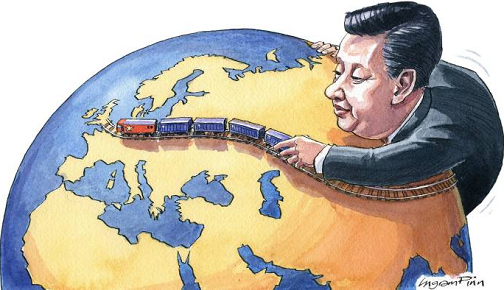 CHINA’S INFLUENCE IN CENTRAL ASIAN TRADE
CHINA’S INFLUENCE IN CENTRAL ASIAN TRADE
Gülperi GÜNGÖR 08.06.2020 -
 TRANSPORTATION PROJECTS IN CAUCASIA
TRANSPORTATION PROJECTS IN CAUCASIA
Gülperi GÜNGÖR 27.05.2021 -
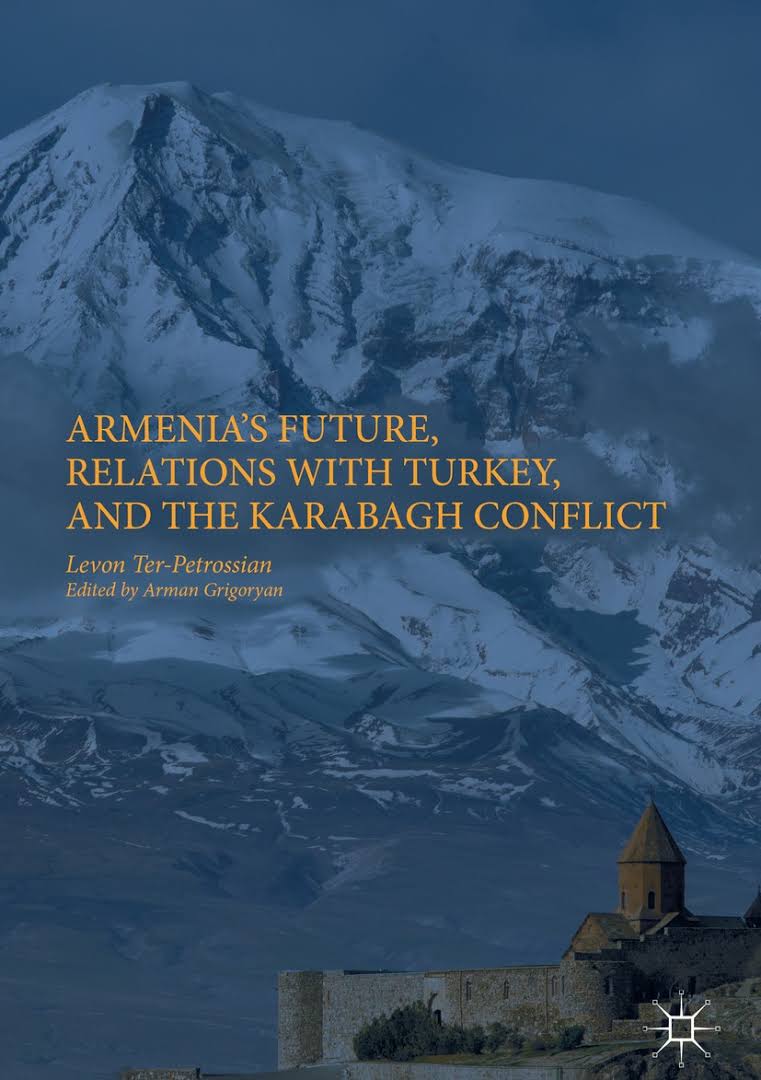 BOOK REVIEW: “ARMENIA’S FUTURE, RELATIONS WITH TURKEY, AND THE KARABAGH CONFLICT”
BOOK REVIEW: “ARMENIA’S FUTURE, RELATIONS WITH TURKEY, AND THE KARABAGH CONFLICT”
Gülperi GÜNGÖR 11.02.2020 -
 MONGOLIA’S SEARCH FOR BALANCE IN ITS FOREIGN POLICY
MONGOLIA’S SEARCH FOR BALANCE IN ITS FOREIGN POLICY
Gülperi GÜNGÖR 28.08.2020 -
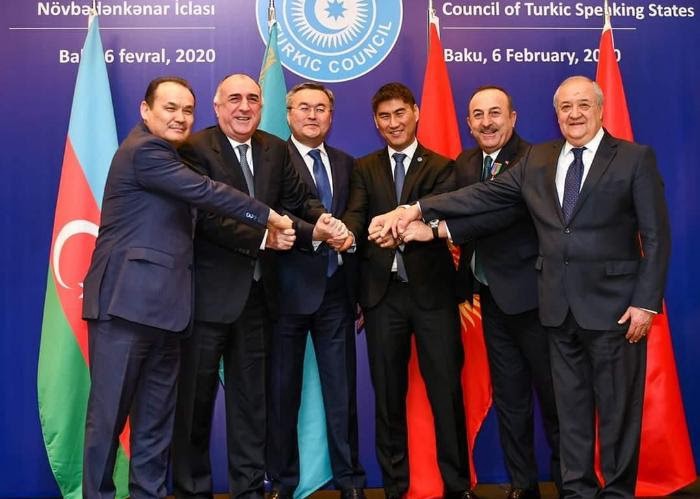 TURKIC COOPERATION IN THE CENTER OF EURASIA: THE TURKIC COUNCIL
TURKIC COOPERATION IN THE CENTER OF EURASIA: THE TURKIC COUNCIL
Gülperi GÜNGÖR 05.02.2021
-
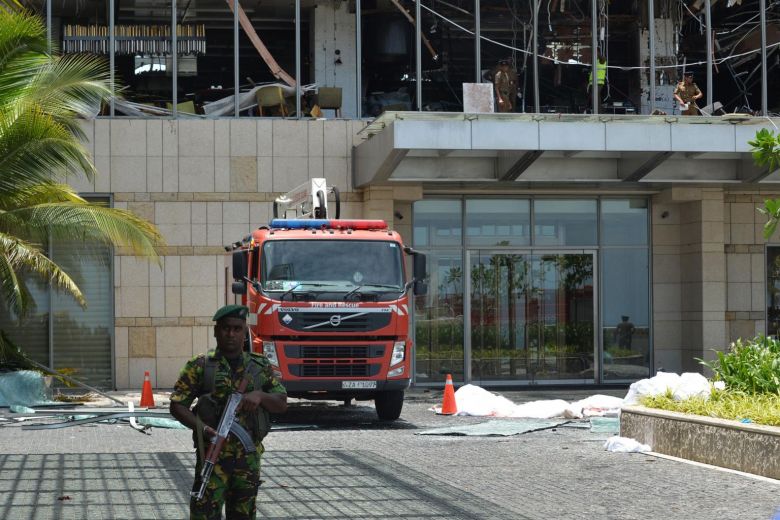 ABUSING SRI LANKA TERRORIST ATTACKS TRAGEDY AS A PRETEXT FOR PROPAGATING FALSE GENOCIDE CLAIMS
ABUSING SRI LANKA TERRORIST ATTACKS TRAGEDY AS A PRETEXT FOR PROPAGATING FALSE GENOCIDE CLAIMS
Teoman Ertuğrul TULUN 29.04.2019 -
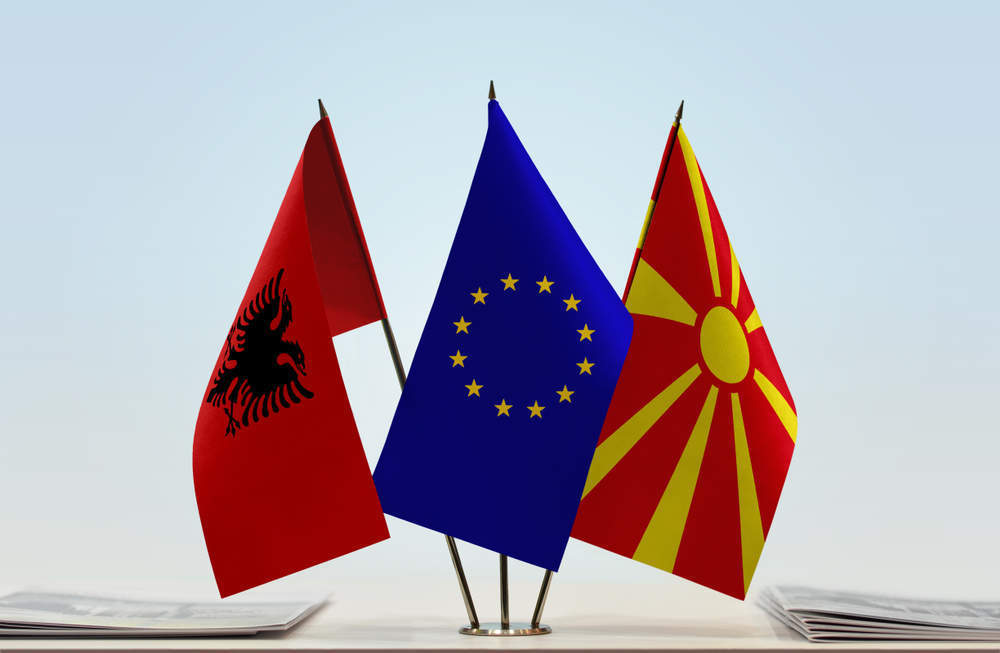 FRANCE AND GREECE HAVE FINALLY AGREED: EU ACCESSION TALKS BEGIN WITH ALBANIA AND NORTH MACEDONIA
FRANCE AND GREECE HAVE FINALLY AGREED: EU ACCESSION TALKS BEGIN WITH ALBANIA AND NORTH MACEDONIA
Teoman Ertuğrul TULUN 08.04.2020 -
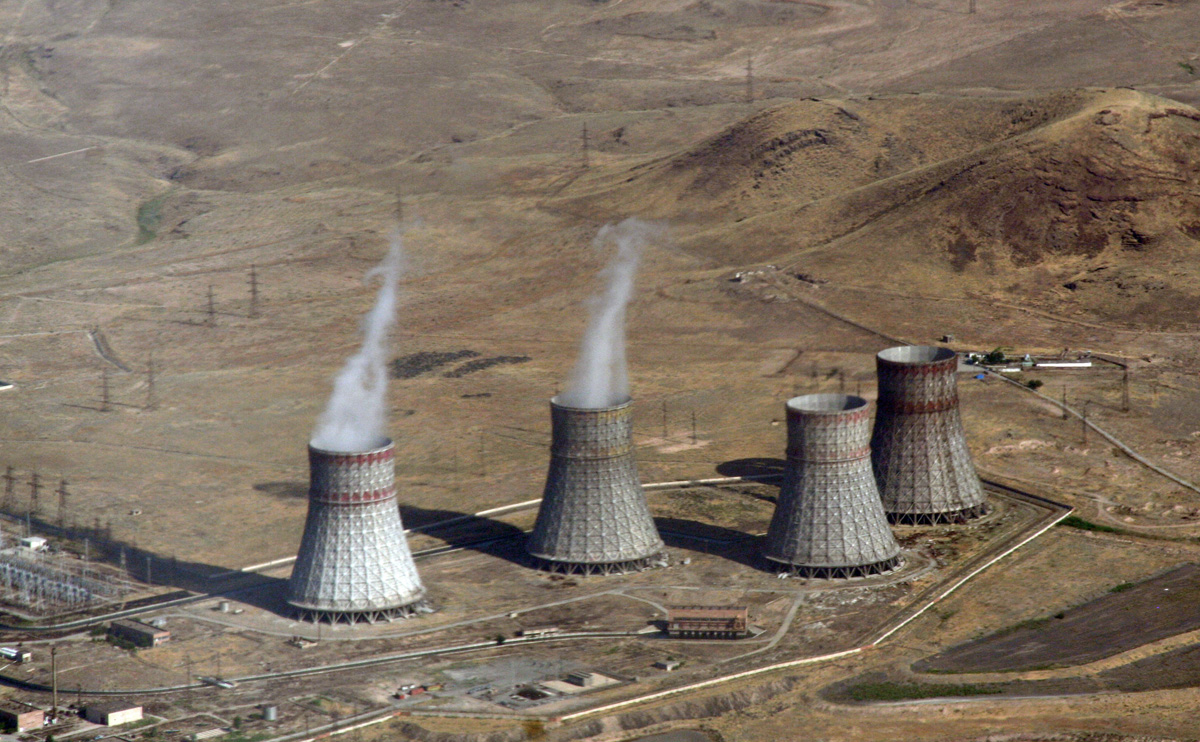 NUCLEAR THREAT IN THE SOUTH CAUCASUS; METSAMOR TO CONTINUE OPERATING
NUCLEAR THREAT IN THE SOUTH CAUCASUS; METSAMOR TO CONTINUE OPERATING
Özge Nur ÖĞÜTCÜ 20.10.2016 -
 GEORGIA'S CROSSROADS: STABILITY AND SOVEREIGNTY
GEORGIA'S CROSSROADS: STABILITY AND SOVEREIGNTY
Teoman Ertuğrul TULUN 17.12.2024 -
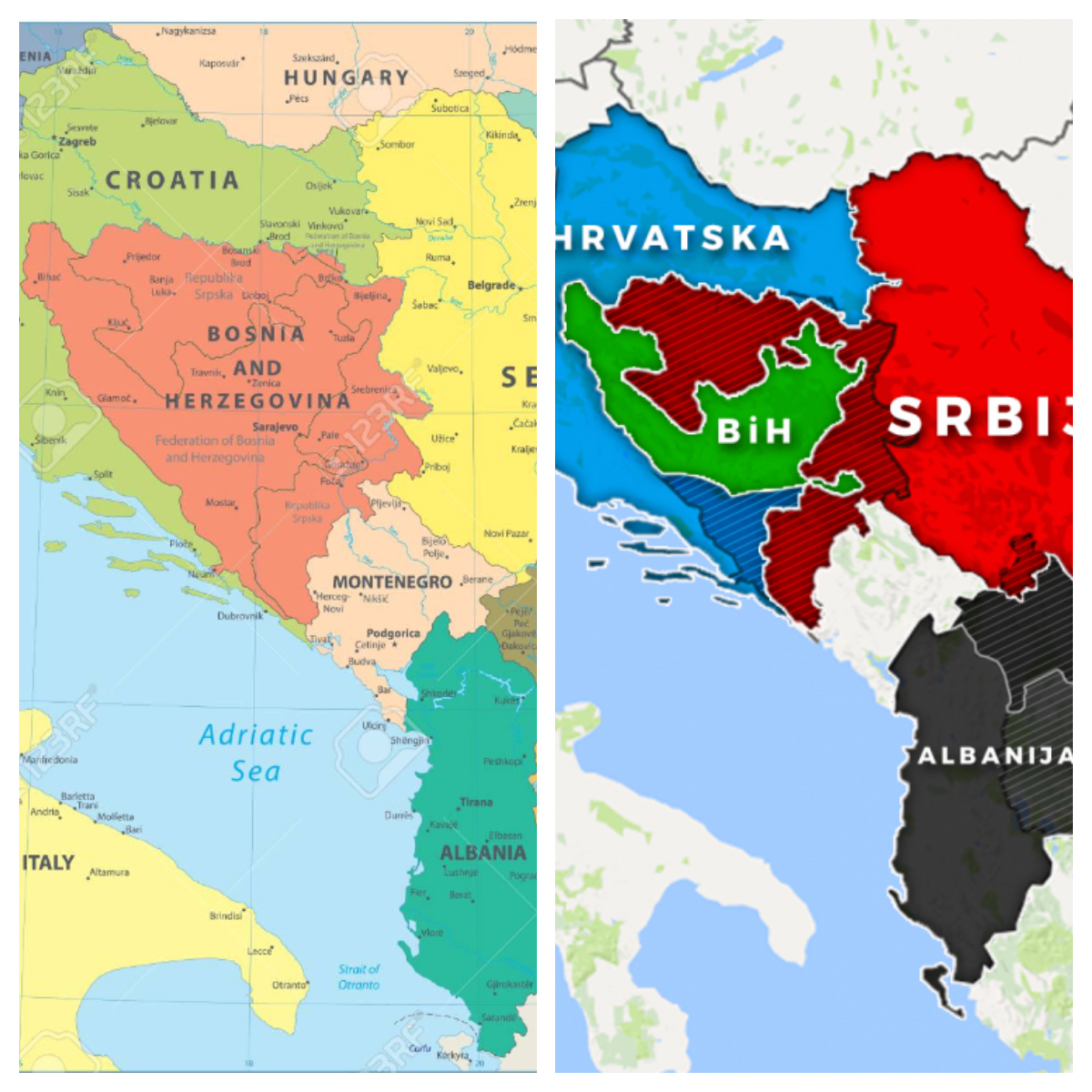 SLOVENIAN DOCUMENT ON DISMEMBERMENT OF BOSNIA-HERZEGOVINA CONFIRMS THE NECESSITY OF CONTINUING THE PIC-OHR-BONN POWERS
SLOVENIAN DOCUMENT ON DISMEMBERMENT OF BOSNIA-HERZEGOVINA CONFIRMS THE NECESSITY OF CONTINUING THE PIC-OHR-BONN POWERS
Teoman Ertuğrul TULUN 30.04.2021
-
25.01.2016
THE ARMENIAN QUESTION - BASIC KNOWLEDGE AND DOCUMENTATION -
12.06.2024
THE TRUTH WILL OUT -
27.03.2023
RADİKAL ERMENİ UNSURLARCA GERÇEKLEŞTİRİLEN MEZALİMLER VE VANDALİZM -
17.03.2023
PATRIOTISM PERVERTED -
23.02.2023
MEN ARE LIKE THAT -
03.02.2023
BAKÜ-TİFLİS-CEYHAN BORU HATTININ YAŞANAN TARİHİ -
16.12.2022
INTERNATIONAL SCHOLARS ON THE EVENTS OF 1915 -
07.12.2022
FAKE PHOTOS AND THE ARMENIAN PROPAGANDA -
07.12.2022
ERMENİ PROPAGANDASI VE SAHTE RESİMLER -
01.01.2022
A Letter From Japan - Strategically Mum: The Silence of the Armenians -
01.01.2022
Japonya'dan Bir Mektup - Stratejik Suskunluk: Ermenilerin Sessizliği -
03.06.2020
Anastas Mikoyan: Confessions of an Armenian Bolshevik -
08.04.2020
Sovyet Sonrası Ukrayna’da Devlet, Toplum ve Siyaset - Değişen Dinamikler, Dönüşen Kimlikler -
12.06.2018
Ermeni Sorunuyla İlgili İngiliz Belgeleri (1912-1923) - British Documents on Armenian Question (1912-1923) -
02.12.2016
Turkish-Russian Academics: A Historical Study on the Caucasus -
01.07.2016
Gürcistan'daki Müslüman Topluluklar: Azınlık Hakları, Kimlik, Siyaset -
10.03.2016
Armenian Diaspora: Diaspora, State and the Imagination of the Republic of Armenia -
24.01.2016
ERMENİ SORUNU - TEMEL BİLGİ VE BELGELER (2. BASKI)
-
AVİM Conference Hall 24.01.2023
CONFERENCE TITLED “HUNGARY’S PERSPECTIVES ON THE TURKIC WORLD"









